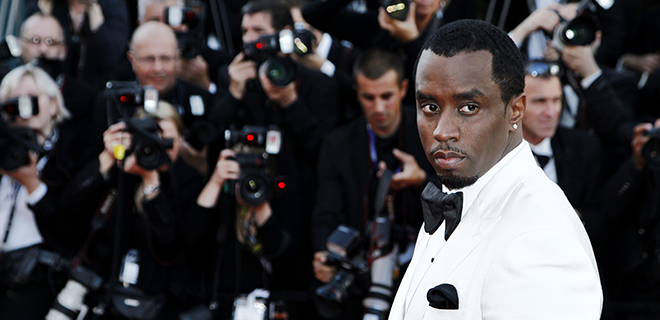
With the swift evolution of the media industry, it’s hard enough for publishers to stay afloat without a news-breaking scandal. Yet, Revolt dishes out a playbook on how a major brand safety concern should not ruin your business’s revenue, credibility, and reputation.
In November, former Revolt Founder Sean “Diddy” Combs stepped down from his role in the company after several plaintiffs filed sexual assault lawsuits against him, most notably from his ex-girlfriend Cassandra Ventura (aka Cassie).
Of course, a brand’s success does not outweigh the serious nature of these allegations. Still, Revolt CEO Detavio Samuels must consider how the brand will move forward during turbulent times.
Combs launched Revolt in 2013 to create a Black music-focused digital cable television network. Over a decade later, the brand has garnered success even after Diddy’s allegations shone a dark light on the company.
“We lost no clients, we lost no employees, we didn’t lose a dollar,” Samuels told The Hollywood Reporter. “Q4 was the largest quarter in the history of Revolt, and 2023 was the best advertising year we’ve had in the history of Revolt. In all ways, it was record-breaking, even in the middle of a crisis.”
In the era of media layoffs, previously suspected ad spend slowdowns, and a topsy-turvy industry, how could they do it?
Black Media’s Brand Safety Struggles
Even outside a major scandal like this one, Black brands struggle with industry-wide brand safety guidelines. Louis Jones, CMO, Brand Safety Institute, elaborates that brand safety functions on many variables that often work against Black media.
For instance, the overly rigid automation of brand safety measures often introduces bias and hinders inclusive marketing strategies.
“We’ve discussed how keyword blocking and blunt strategies have worked against diverse media,” said Jones. “For example, you can create an algorithm with biases that completely ignore minority media. The algorithm learns to bypass them.”
As Crystal Foote, Founder of Digital Culture Group, asserts, advertisers and agencies must adopt a more informed blocking strategy that creates outdated keywords tailored toward a narrow demographic.
How can a Black Media business move beyond a major scandal despite systematic biases?
Addressing the Media Problem Head On…At Least Some
No path to success is perfect, but Revolt understood the media landscape and sought to address its evolution head-on. Samuels declined to answer questions revolving around Diddy’s lawsuit, which also includes Revolt host Yung Miami, but he understands the digital media future he faces.
Revolt and the larger media industry have concerns galore. Mass media layoffs have marred the digital media industry, such as BuzzFeed, which just laid off 16% of its staff. Major brands have started to divest from Black media brands after initial promises in 2020. Additionally, streaming and social media platforms are causing a decline in linear cable, and the rise of AI has every industry in a tizzy.
Despite this, Revolt has succeeded by diversifying its content throughout the years and understanding its core audience.
Revolt has created various arrays of content throughout its tenure, including the Netflix coming-of-age film Dope, the award-winning special REVOLT x Michelle Obama: The Cross-Generational Conversation, and the annual Revolt Summit. Recently, the media company has found success with video podcasts such as Caresha Please, Drink Champs, and Black Girl Stuff. This programming resonates with Revolt’s core audience, evenly split between 18- to 34-year-old men and women.
It shows Samuels has his pulse on the future while expanding his chance to work with various advertisers. As mentioned in our feature on The Guardian US’s new health and wellness vertical, Well Actually, diversifying content opens the opportunity to work with new advertisers and generate new ad dollars.
For example, with Well Actually, The Guardian US can now partner with health and wellness brands to advertise in their stories and newsletters.
Revolt’s Top Customers Are Advertisers…but There Is a Decline in Black Media Investment
The Cable TV Network launched Revolt Summit in 2019, a three-day event that allowed rising business owners to learn from established media moguls. Renamed Revolt World, the event has proven to be a profitable revenue source for Revolt because advertisers can target their unique demographic: young Black and brown individuals around 28 years old.
Samuels told The Hollywood Reporter, the media company envisions Revolt World doubling its impact from last year, which already saw triple the growth from the previous year. They aim to make it Atlanta’s version of SXSW or the Essence Festival.
Despite Revolt World’s advertising success, Samuels does notice a divestment of Black Media since the surge in 2020 after George Floyd’s murder.
“When George Floyd’s murder occurred, advertisers began showing interest in Black-owned media, but their commitments remained small,” Samuels told The Hollywood Reporter. “The increase in support only amounted to a marginal rise from one percent to two percent of the market—essentially going from one penny to two pennies. This disparity is stark considering the significant influence Black culture holds globally, with Black consumers comprising 14 to 15 percent of the market and driving 80 percent of global culture. The hope was for progress by the end of 2023, but unfortunately, that didn’t materialize.”
He further laments that this is a scary season for media owners, especially Black and diverse-owned media owners who “feel like the game is being played at a level where we don’t have a ton of power.” There are nonprofits and organizations like BOMESI that are working towards fighting this, but there is still a long way to go.